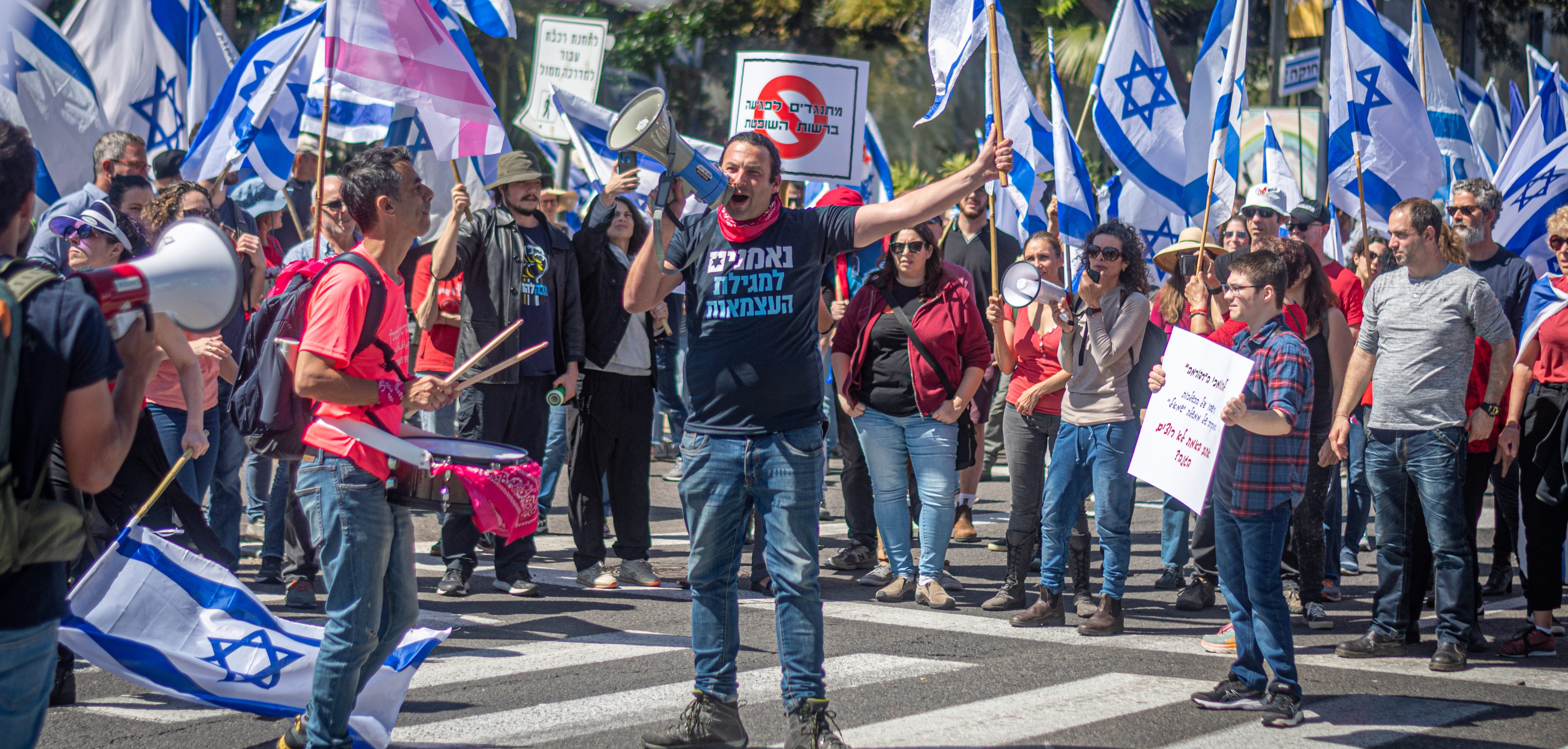Defense & Security
The political crisis in Israel

Image Source : Shutterstock
Subscribe to our weekly newsletters for free
If you want to subscribe to World & New World Newsletter, please enter
your e-mail
Defense & Security

Image Source : Shutterstock
First Published in: Apr.03,2023
May.09, 2023
The political crisis currently experienced by Israel has its origins in the structure of the political system of this country, institutionalized since the twenties of the last century, in British Palestine, through the installation of an electoral system first adopted by the Jewish community authorities, which was growing with immigration, and then by the State of Israel since its establishment in 1948. It was a parliamentary proportional representative system, with a single national list, with an entry band for Parliament that varied from 1% of the votes to the current 3.25%. This system worked regularly while the big parties of the time –Labor and Likud (liberal nationalist)– received a large percentage of votes that allowed them to choose minor partners for the government coalition and at the same time they were led by politicians who possessed high levels of legitimacy by their foundational roles in Israel, such as were Ben Gurion and Begin.
Around the 1980s, electoral parity began to emerge between the possible government coalitions led by both parties, and this situation gave rise to governments of national unity led by Shamir and Peres. Later, the big parties lose electoral support, and the government coalitions are increasingly weak. This is because the leader of the party that wins the first electoral majority wins just over a quarter of the votes, while to achieve a coalition that includes more than 50% of the parliamentary seats, he must pay high 'prices' to the small parties and depends more and more on them in order not to lose the government. This is the current case of the Netanyahu government.
The attempt at electoral reform in the 1990s, which separated the election of the Prime Minister from the parliamentary election - from the coalition supporting the government - failed, as it reinforced both ideologically and electorally the smaller parties. Ultimately, at the beginning of this century, the previous system was restored with an increase in the percentage of votes required for entry into Parliament.
At the same time, Israel lacks a written Constitution and instead has a series of basic laws that outline the structure of the State and safeguard the rights of citizens and minorities. In the 1990s, the Israeli constitutional void was filled through judicial activism by the Supreme Court, which carried out a process of judicializing politics and exercised its authority to limit government actions and legislation that it deemed contrary to the prevailing legal system. Some politicians viewed this as an attempt by the Supreme Court to assert supremacy and curtail the popular will expressed through parliamentary elections.
Meanwhile, the weakness of the major political parties and the personalistic and populist tendencies - which were accelerated during the years when electoral reform led to the separation of the election of the Prime Minister from that of the Parliament (Knesset) - led to Israel holding five national elections between 2019 and 2022, in which the major parties had great difficulty in generating stable government coalitions. The latest election, on November 1, 2022, granted the first majority to the Likud, and its leader, Netanyahu, formed a government coalition that they themselves described as "completely right-wing." The coalition includes, outside the Likud, three ultra-Orthodox parties and two religious nationalist parties. One problem with it is that it contains many ideological contradictions among its members and also generates serious disputes over the leadership of each of the sectors. An additional problem is that it includes a party - the Jewish Power party, led by Ben Gvir - that is openly anti-Arab in racist terms.
Among the electoral proposals of this bloc of parties, which make up the current government, the one for judicial reform stood out, whose central content was to remove from the Supreme Court of Israel its role and authority with respect to the revision of legislation, as well as over the actions of the Government and its power to curb everything that it considered undemocratic and in opposition to the existing basic legislation. This would be accomplished through a series of laws that would change the judge election commission, removing the Supreme Court's right to veto judge appointments, and introducing a representative majority of the governing coalition on this commission. Another proposed law would give Parliament, with a 61-vote majority, the power to override any political decision of the Supreme Court. Beyond these, it is proposed to weaken the control authority that the Attorney General's Office has regarding appointments and government acts, and a series of measures that would practically eliminate the political powers of the Judiciary within the current Israeli system of checks and balances (brakes and balances designed to prevent any of the branches of the State from acquiring supremacy over the other two).
The argument of Netanyahu and his coalition allies is that they have the power to carry out this judicial reform or revolution, since the people have wanted it and have manifested it through their vote in the last election. Beyond this, Netanyahu and his allies make “identity politics” arguments, which maintain that Israel, although governed by Likud-led coalitions, remains in the hands of the former Ashkenazi elites originating from historic Labor; and this means the discrimination of Eastern Jews from the institutions of power, such as the Supreme Court and the judicial system, the academic elite, the financial elite, the high-tech elite, and even certain military elites.
The speed with which Netanyahu and the government coalition attempted to legislate this reform caused an unexpected popular protest to emerge from civil society, without clear political leadership, as the parliamentary opposition was practically dragged along by the popular protest. In addition, it should be noted that the protest is focused not only on the reform itself but also on Netanyahu's personal interest, as he is facing three corruption trials and the disqualification of Deri, the leader of the ultra-Orthodox Sephardic party Shas, from serving as a minister in the current coalition.
The massive protests and strong international criticism, especially from the US and the European Union, along with a climate of instability that weakens the value of the national currency - the Shekel -, the withdrawal of capital, and threats in the area of internal and international security, have strengthened the protests and created coalitions among sectors that seemed irreconcilable before these recent events. Thus, reservists in elite units have stated that they will not continue to serve in their military roles under a Netanyahu dictatorship since, if everything depends on a parliamentary majority without balance between the powers, that majority forming the government coalition would delegate its parliamentary authority to him and the government would be in the hands of the prime minister, whom the protest activists consider a future dictator. Faced with this, the massive protests have included blockades of central roads and the paralysis of activities.
Added to all this is the fact that the Minister of Security (Defense), Gallant, demanded that Netanyahu stop the reform legislation because the security situation - facing Iran, Hezbollah, Syria, the West Bank, and Gaza - during this month of Ramadan is perceived as dangerous and it is a bad period to add internal instability. Netanyahu prevented Gallant from making a public statement explaining all of this, although Gallant did so while Netanyahu was on an official visit to London. Netanyahu reacted by declaring that Gallant would no longer lead the Ministry of Security (Defense), but he did not send him the dismissal letter. When Netanyahu fired Gallant on Sunday night, a large crowd took to the streets across the country to protest this measure, and the next morning, in a special meeting, the Histadrut (General Federation of Labor), in coordination with the associations of industrialists, merchants, and bank directors, declared a general strike that paralyzed Ben Gurion airport and large sectors of the entire country.
As a result of all this and after a day of intense negotiations within the government coalition - facing the religious nationalist parties, who, due to past issues and settlement problems in the West Bank, were the ones who most demanded the reform, and alongside the Minister of Justice, Levin, who is the author of the reform plan - Netanyahu declared that the reform is on hold for the next month to make way for a conciliatory negotiation that produces an agreed reform of the Israeli legal system, in negotiations that will be guided by President Herzog.
It is clear that legislating a Constitution at this time, with the multiple fractures of Israeli society aligning in two polarized blocs, is a pipe dream. It is also necessary to understand that behind the attempt at judicial reform-revolution, there is an ineffective political system that must be reformed and updated in order to face the multiple challenges of Israel in the 21st century, which are very different from those of a century ago when this system began to be institutionalized.
First published in :

Mario Sznajder, PhD. Professor Emeritus of Political Science at the Hebrew University of Jerusalem. His research interests include Fascism, Democratisation, Human Rights Policies, Exile and Return, as well as Political Anti-Semitism, Israel and the Middle East. He has published numerous scientific articles and several books. Among them: Mario Sznajder, Historia mínima de Israel, Mexico and Madrid: El Colegio de Mexico and Turner (2017 and 2018). Mario Sznajder, Luis Roniger (2009) The Politics of Exile in Latin America. NY, Cambridge, UK: Cambridge University Press, translated into Spanish (2013): La política de destierro y exilio en América Latina. Mexico: Fondo de Cultura Económica; Mario Sznajder, Luis Roniger, Carlos A. Forment (eds.) (2013) Shifting Frontiers of Citizenship: The Latin American Experience. Leiden, Boston, MA: Brill; Mario Sznajder (ed.) "Israel 2013" Araucaria 30 (15) second half of 2013; Luis Roniger, Mario Sznajder (1999) The Legacy of Human rights Violations in the Southern Cone. Oxford, Oxford University Press; and Zeev Sternhell, Mario Sznajder, Maia Asheri (1989) Naissance de l'ideologie fasciste Paris: Fayard (translated into 7 languages) and others.
Unlock articles by signing up or logging in.
Become a member for unrestricted reading!